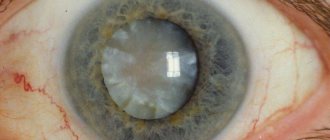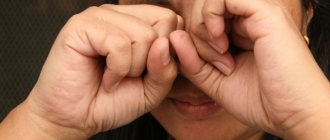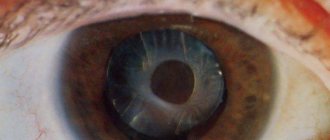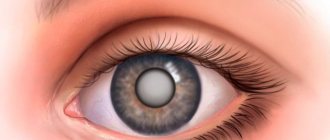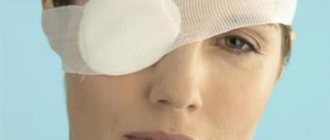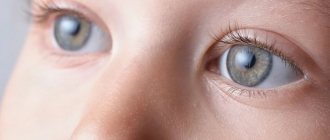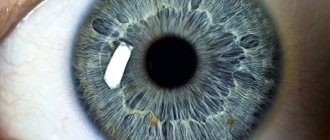Laser vision correction is one of the fastest, painless and effective procedures available today. That is why it is very popular among patients of different age categories. In order to achieve the desired result, it is important to adhere to certain rules during the rehabilitation period.
In this article
- What should you not do after laser vision correction?
- Stress on vision after laser surgery
- Laser eye correction and driving
- Sports and other physical activities after laser vision correction
- General restrictions and recommendations after laser eye surgery
Eye surgery using a laser to improve vision is done very quickly, it lasts about a few minutes. In order for it to be successful, the specialist first conducts a comprehensive examination of the patient’s visual organs and refers the patient to undergo a series of tests to a therapist. After the procedure, the person does not need to stay in the clinic for a long time; after a maximum of two hours, he can be sent home, provided that the operation was successful.
What should you not do after laser vision correction?
Complete recovery of the eyes after surgery occurs within about one month. In order for this process to proceed successfully, there are rules that tell you what not to do during this period:
- Drink alcoholic beverages in any quantity;
- Visit saunas, baths and swimming pools;
- Play sports and undergo other physical activities;
- Relax in nature;
- Take long baths;
- Go on long trips, especially with climate change;
- Eat salty and spicy foods;
For a long period (on average a year) engage in sports that are traumatic for the head, such as boxing, martial arts and the like.
It is important to understand that after laser eye surgery, displacement of the corneal flap may occur as a result of unexpected eye injuries. That is why ophthalmologists recommend wearing sunglasses with a reliable UV filter; in case of a traumatic event, the glasses will perform a protective function. During the recovery period, you should also avoid interacting with pets and small children, who can injure your eyes through negligence.
Stress on vision after laser surgery
Patients with a pathology such as myopia or, as they say in simple terms, myopia are strictly not recommended to do any strain on the eyes for about two weeks. After this period, it is allowed to do this after laser surgery in small quantities. In other words, a person can read or work at a computer, taking frequent and preferably long breaks. The duration of visual loads will gradually increase, and the pauses between approaches will decrease. Many ophthalmologists prescribe special training glasses to their patients in the third week after eye surgery.
For patients with hyperopia (farsightedness), the list of “what should not be done after surgery” does not prohibit near vision loads, so you can read, use a computer, gadgets or watch TV from the first days of rehabilitation.
Rules for the postoperative period
How long the postoperative period lasts will also depend on the patient. He must strictly follow the doctor's recommendations.
There are measures that are implemented regardless of the type of operation.
These include medication treatment, special exercises, wearing special jersey, and physical therapy.
Treatment with medications is included in the mandatory rehabilitation course. Phlebotonics are often used to restore blood circulation as quickly as possible. Such therapy should last no more than two weeks; the drugs can restore the elasticity of the venous wall.
It is possible to use anticoagulants and antiplatelet agents. They help speed up and facilitate the recovery process.
Taking medications provides:
- pain relief;
- prevention of blood clots;
- activation of blood circulation;
- elimination of compactions and formations after surgery.
Such treatment should be selected individually, based on the condition of the body and the severity of the disease.
Immediately after the operation, an elastic bandage is put on the limb, and the leg itself should lie on a bolster in an elevated position; however, it is not recommended to lie down for a long time. If low-traumatic operations were performed, then you can walk after a few hours, but after phlebectomy this is allowed only the next day.
After removing the vessel, you need to start performing special exercises. This is necessary so that blood does not stagnate in the limbs. You can even do some exercises in bed. Then the patient is recommended to walk or ride a bicycle. The main thing is that the load is properly planned and distributed throughout the day.
The following exercises are recommended for exercise:
- Walking (in different types).
- Joint movements.
- Exercise "bicycle".
- Crossing your legs in the air.
At first, the movement should be constant, but you cannot take a sitting position for more than 2 hours. Daily exercise is especially important for older patients, because this is when there is a huge risk of complications after surgery.
Latest information: Is it possible to exercise on a stepper with varicose veins?
Note that with the help of compression products, blood circulation in the legs is restored. They can prevent hematomas. During the first days, the patient should not take off the knitwear at all.
Laser eye correction and driving
Driving a vehicle is something you should not do for a month after vision surgery. First of all, doctors do not recommend doing this for the safety of the patient. The fact is that the eyes and brain in the early stages after the procedure require adaptation to updated optical conditions (changed visual acuity, size of objects, distance between them).
In addition, in the dark after surgery, light aberrations (halos, glare, glare, rainbow circles from the headlights of oncoming cars) may occur, which can lead to loss of control. If the patient is a passenger, after laser correction, what should not be done is to open the windows in the car and direct air flow from the air conditioner or fan towards the face to prevent the eyes from drying out and dust from getting into them.
Sports and other physical activities after laser vision correction
It is very important to remember that after laser correction you should not do exercises that lead to serious physical stress on the body, especially if a person is taking steroid medications.
This may cause increased intraocular pressure. From the third week after surgery, athletes can perform half-hearted physical activity, and then gradually increase it. Please note that people suffering from myopia quite often experience areas with dystrophy, thinning, stretching and other disorders of the fundus of the eyes. Most often, such manifestations are directly related to the degree of myopia. It is for this reason that patients are first prescribed laser strengthening of the retina for prophylactic purposes. However, the procedure is also prescribed after laser surgery. Then the doctor also draws up a list of what absolutely cannot be done. For example, exclude jumping, long bends of the body, various types of shaking and vibration.
Female representatives are written a large letter of recommendation about childbirth, which is intended for an obstetrician.
Ophthalmologists warn that if a person has myopia, even after laser vision correction, changes in the retina should be regularly monitored over time by the treating specialist. In turn, the patient must carefully follow all rules regarding behavioral restrictions.
How to overcome it
Physical education after surgery
Stress after surgery is a natural phenomenon, and there are many ways to overcome it. First of all, it is worth understanding what exactly you can expect before, during and after the intervention. To do this, do not hesitate to clarify information with your doctor, or study the experience of other people who have encountered a similar problem.
Regular rest will help you cope with depression. This does not mean that you need to sleep more; it is enough to adhere to a competent regime of physical activity. Proper distribution of sleep and wakefulness helps to effectively combat negative emotions that invariably arise after surgery.
We must lead a healthy lifestyle. In the postoperative period, you should stop drinking alcohol and smoking, which will significantly speed up your recovery. Correctly set goals will help you cope with depression. Even minor victories on the path to realizing plans and desires will allow a person to improve his mood and provide motivation for good prospects.
But you shouldn’t overestimate your strength, since surgical intervention radically changes the pace of your usual life. You should be patient and not worry about things that are forced to be postponed. If necessary, do not hesitate to seek psychological help from a specialist.
The period after surgery is the best time for self-improvement. Spiritual practices will help to overcome unpleasant symptoms; each person has the right to choose the direction that interests him most. This could be comprehension of yoga and other practices that expand consciousness; reading the Bible, books on Buddhism. You need to try any available methods of avoiding depression that will allow you to find strength and clear your mind.
General restrictions and recommendations after laser eye surgery
In addition to global prohibitions that a person should not commit after the procedure, there are everyday restrictions.
For example, for several days after eye surgery, you should not wash your face with high pressure of water; it is better to wipe the area around the visual organs and eyelids with a cotton swab moistened with hot water. It is recommended to wash your hair with your head tilted back to avoid getting shampoo in your eyes.
It is also worth limiting the use of decorative cosmetics for a period of up to one month, since regular use of drops prescribed by a specialist is required. If desired, you can wear sunglasses with a UV filter.
During the first summer season after laser eye surgery, you should not sunbathe. And if more than 4 weeks have passed since the end of the procedure, you can do it in portions: 20-30 minutes in the morning or evening, when the sun does not have such a strong effect on the body. It is very important to take care of protection from ultraviolet radiation.
Monitor your immunity after vision surgery; it is important to protect yourself from colds.
If you are already undergoing a rehabilitation period, it is better to postpone your planned pregnancy for 3 months, as your doctor may prescribe hormonal medications. If the patient is simultaneously undergoing treatment for somatic abnormalities, the intake of all medications must be coordinated with a specialist.
After correcting myopia, you are allowed to return to work only after completing 1-3 weeks of rehabilitation. The duration will depend on the patient’s age and the severity of the refractive error. People with farsightedness can do this almost immediately after the eye procedure, with the exception of work associated with strain on the visual organs when examining objects in the distance; such patients include, for example, truck drivers.
When can you use the sauna after cataract removal?
The bath has always been recommended as one of the most effective means for treating many diseases.
Alternating different temperature conditions and exposing the skin to hot steam improves immunity, helps cure many diseases, and stimulates the functioning of the cardiovascular system. However, for a number of diseases, visiting a bathhouse or sauna is not recommended or recommended with restrictions.
Bath and cataract
Patients often ask the question whether visiting a hammam or sauna affects the development of cataracts. Many believe that high temperatures can speed up its ripening. In fact, this is a myth. Cataracts in most cases are associated with age-related changes in the tissues of the eye. Provoking factors may also be:
- Heredity
- Eye diseases
- Metabolic disease
- Long-term treatment determined by pharmacological drugs
- Bad ecology
But exposure to high temperatures is not on this list. Therefore, a bath for eye cataracts will not affect the development of this disease in any way - it will not accelerate the maturation of cataracts, but it will not slow down the pathological processes. Steam, wash, visit the sauna completely calmly.
Is it possible to go to the bathhouse if you have cataracts? Not only possible, but also necessary (if there are no other contraindications)
Bath after cataract surgery
Let us remember that the only way to treat cataracts is surgery. The clouded lens is replaced with an artificial one, which takes on the function of focusing the image on the retina.
During the operation, the surgeon makes an incision on the cornea of the eye, through which the IOL is implanted.
This incision is very important in light of the topic discussed in the article, since it is with it that the main restrictions on visiting a sauna or bath after replacing the lens are associated.
Bath procedures, contrast dousing, massage have a beneficial effect on the recovery processes in the body. The level of hemoglobin increases, blood circulation increases, which in turn promotes the active transport of nutrients into the tissue. In such conditions, any healing processes occur more actively and faster.
However, there are two points that must be taken into account when visiting the bathhouse
- 1) After cataract removal, a small scar from the micro-incision remains on the eye. Now the edges of the wound are not sutured; the incision heals on its own within a few days. However, under the influence of high temperature and high humidity, the surgical area may become inflamed, which will negatively affect the restoration of visual functions.
- 2) After any operation (including cataracts), a slight inflammatory reaction is observed for some time - the body tries to heal the damage as quickly as possible. In a bathhouse, such reactions intensify, which can also lead to complications.
In any case, consultation with a doctor is necessary. Only an ophthalmologist, after an examination, can decide when you can go to the sauna and what additional restrictions will be imposed.
How long after lens replacement can you go to the bathhouse?
In the first week - two. While you are on sick leave, you should not go to the bathhouse. After a month, you can wash normally and carefully rinse your face with water. After about two months you can fully steam.
How to take a steam bath so as not to harm your health after cataract removal
- Consult your doctor
- It is better to wash with a soft washcloth, protecting your face, and especially your eyes.
- You should not immediately start with a hot steam room - the temperature should be maintained moderate, there is no need to climb onto the top shelf
- A wet bath is preferable - it is better to avoid the sauna at first after surgery
- Intense massage is also contraindicated.
Is it possible to go to the sauna after cataract surgery? You can, provided that there are no inflammatory reactions in the eye and the doctor has given you permission to visit the sauna. This usually occurs two months after surgery.
source
Rehabilitation after cataract surgery
Today, surgical treatment of cataracts using ultrasonic phacoemulsification is one of the most common and popular ophthalmological operations. Every year, ophthalmic surgeons at the Lege Artis clinic perform more than 4,000 cataract operations.
After the operation, drug therapy follows with the use of special drops, the action of which is aimed at consolidating the achieved results in the treatment of cataracts. From this article you will learn how recovery after surgery proceeds, as well as what doctors at the Lege Artis clinic recommend to avoid complications.
Rehabilitation after cataract surgery
Treatment of cataracts by surgery is painless, and new technologies have made it less traumatic and safe. Thanks to these qualities, the rehabilitation period has been significantly reduced and is quite comfortable for patients. The restoration of visual acuity and clarity occurs almost immediately after the operation.
Source: //tepcontrol.ru/kogda-mozhno-poseschat-saunu-posle-udaleniya-katarakty/
conclusions
Remember that if you follow all the recommendations of the ophthalmologist, your eyes will recover in the shortest possible time, the unpleasant sensation will go away, and you will get rid of the need to wear glasses that hinder your movements.
If you feel discomfort after the procedure (the picture is floating, your eyes hurt, etc.), you should not try to endure it, you must immediately inform the doctor about it. In the first year after surgery, you should see a specialist more often.

